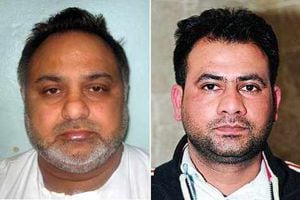No sentence reduction for Shropshire killer
The country's top judge today refused to cut the 20-year minimum jail term of a Shropshire factory worker who stabbed and killed a friend in a "moment of madness".

The country's top judge today refused to cut the 20-year minimum jail term of a Shropshire factory worker who stabbed and killed a friend in a "moment of madness".
The Lord Chief Justice, Lord Judge, threw out an appeal from lawyers acting for Balraj Singh saying Parliament had laid down that stiff penalties must be imposed for murders involving a knife.
Singh, of Weavers Rise, Ketley Bank, Telford, was described at London's Appeal Court as "kind, gentle and hardworking" by his defence team lawyers.
Lawyers said his crime was sparked by "intolerable" living conditions which saw him living in a cramped bedsit above the factory and working 13 hours-a-day, seven days-a-week, to support his family in Telford.
The 44-year-old was jailed for life at the Old Bailey in December last year after he was convicted of murdering his workmate, Gurmukh Chahal, 42.
Singh was working at a factory in Southall, West London, at the time.
Lord Judge said that on April 10 last year Singh was eating in the bedsit where he lived when he heard his victim, who was working in the factory below, shout "a gross insult in Punjabi" up the stairs towards him.
The court heard that Singh's response was to head downstairs with a kitchen knife.
After the pair grappled, Mr Chahal suffered a single stab wound to his chest which killed him within minutes.
Singh's lawyers pointed to his previous good character and poor health and argued his 20-year minimum term was over the top.
However, Lord Judge, sitting with Lord Justice Leveson and Mr Justice Bean, said that it was important to crack down on knife killings.
He told the court: "Whichever way one looks at it, we consider that the 20-year specified minimum term for murder involving the use of a knife in circumstances such as those described in this case cannot be described as either wrong in principle or manifestly excessive".
By Wayne Beese





